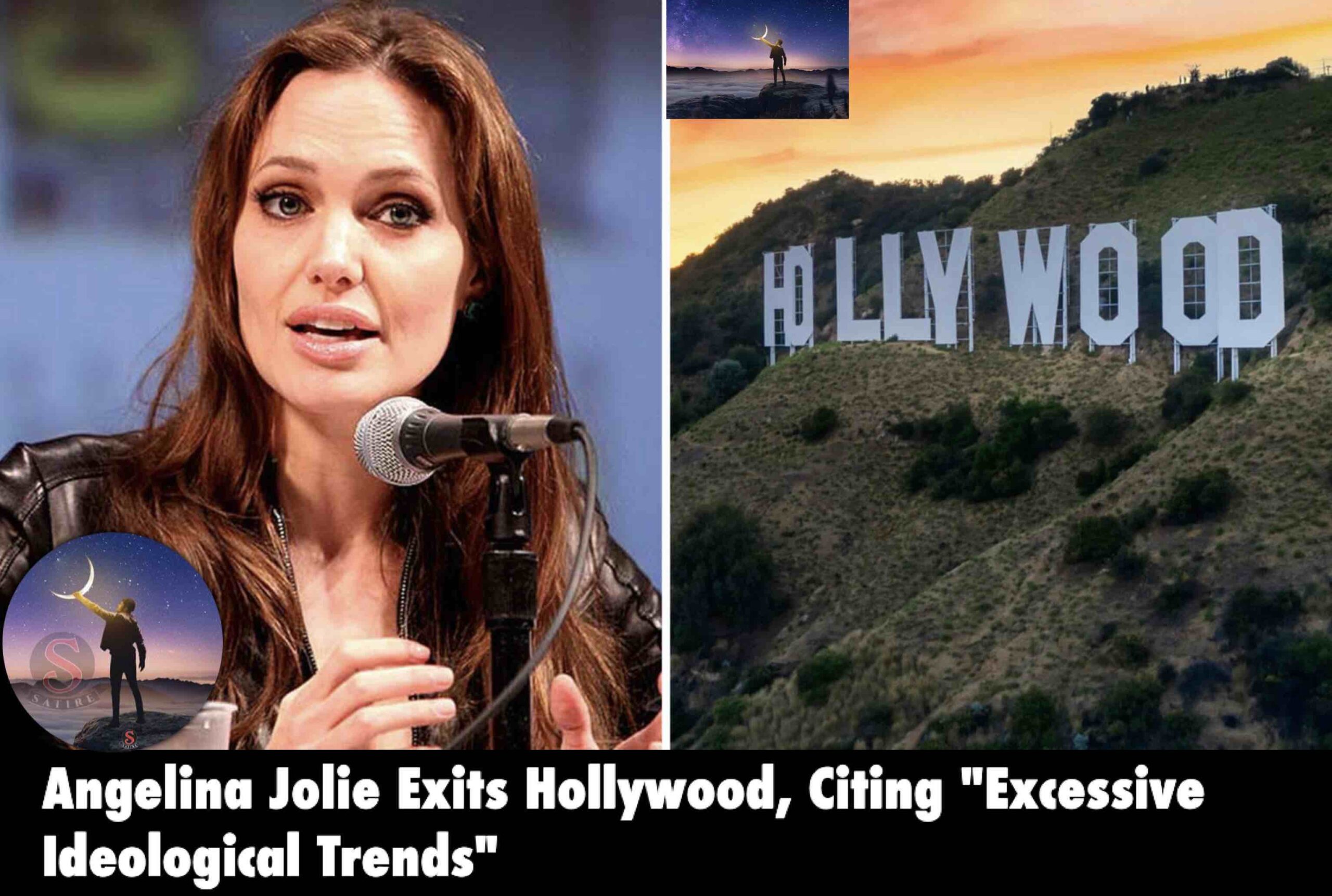In a surprising and trailblazing revelation, Angelina Jolie, an iconic figure in Hollywood, has announced her exit from the film industry, citing an environment she perceives as “excessive wokeness.” This declaration has sent shockwaves through the entertainment world, eliciting a mix of astonishment, support, and critique.
Angelina Jolie’s cinematic journey is undeniably legendary. Her versatility and talent have shone in films like ‘Girl, Interrupted,’ ‘Lara Croft: Tomb Raider,’ and ‘Maleficent.’ Additionally, her directorial works, such as ‘Unbroken’ and ‘First They Killed My Father,’ have been lauded for their poignant storytelling and visual mastery. Beyond the screen, Jolie has been an outspoken advocate for humanitarian causes, leveraging her platform to address global issues.
In recent times, Hollywood has experienced a pronounced shift towards inclusivity, diversity, and social justice, encapsulated by the term “wokeness.” This movement represents a conscious effort to rectify historical inequalities and biases in the industry, fostering diverse casting, storylines, and an increased sensitivity to social and political issues.
In her departure statement, Jolie voiced concerns about the current state of Hollywood, stating, “While I wholeheartedly support diversity and inclusivity, there’s a point where it feels like the art of storytelling is being lost to political agendas.” Jolie’s position suggests a conflict between the pursuit of social justice in Hollywood and the freedom of artistic expression.
The response to Jolie’s announcement has been divisive. Some industry professionals resonate with her sentiments, feeling that an overemphasis on wokeness might stifle creativity and restrict the range of stories told. Others argue that this shift is a necessary and overdue correction to the industry’s long-standing issues of representation and equality.
Jolie’s departure marks a significant juncture in her career, prompting questions about her future endeavors. Will she delve into independent cinema, or will her focus shift more towards activism and humanitarian work? Her decision also leaves a void in Hollywood, where she has been a prominent figure for over two decades.
Jolie’s exit is not merely an individual career choice; it reflects a broader dialogue about the balance between art and activism. The industry stands at a crossroads, navigating the complexities of being a platform for social change while preserving the essence of storytelling.
One of the central debates highlighted by Jolie’s departure is the delicate balance between artistic freedom and social responsibility. While the industry’s shift towards wokeness aims to promote a more equitable and diverse environment, it raises questions about potential limitations on creative expression. This tension underscores the need for a nuanced approach valuing both artistic integrity and social consciousness.
As Hollywood grapples with these challenges, the future of storytelling within the industry remains uncertain. Will narratives become more standardized under the banner of social justice, or will there be space for a plurality of voices and perspectives, including those challenging the status quo?
Jolie’s decision also underscores the evolving role of celebrities in social and political movements. In an era where public figures are increasingly expected to take stands on social issues, the boundaries between their professional work and personal convictions are becoming blurred. How this interplay shapes their careers and public perception is a growing point of interest.
Angelina Jolie’s departure from Hollywood due to concerns of “too much wokeness” signifies a turning point in the industry. It prompts critical discussions about the role of cinema in society, the responsibilities of artists, and the future of creative expression. As Hollywood continues to evolve, finding a balance that honors both its commitment to social change and the timeless art of storytelling will be its greatest challenge and opportunity.
In the end, Jolie’s departure may be seen not only as the end of an era but as the commencement of a new chapter in Hollywood’s history – one that will be written with a careful balancing of diverse voices and perspectives, where the art of cinema continues to inspire, entertain, and provoke thought in an ever-evolving cultural landscape.


